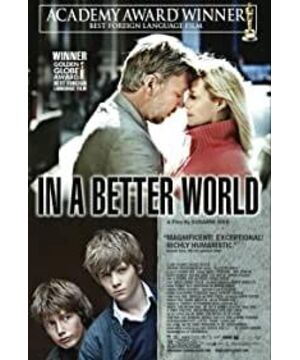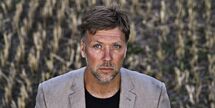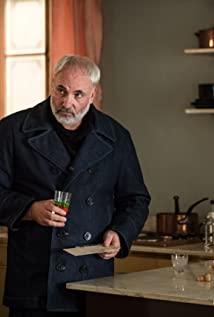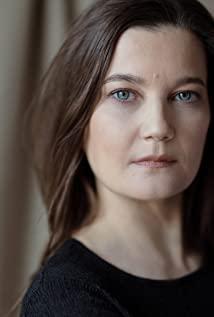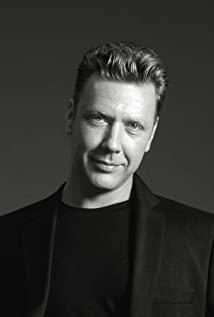You don't even have to listen to Michael Sandel's public class "Justice," and you can't answer it all at once. Or you say an answer you prefer, but if you look closely, you can also find that it cannot stand scrutiny. For better morals, better ethics, this question cannot have a definitive answer.
Violence against violence, evil against evil? When you see all kinds of unreasonable behaviors that trample on others or your own dignity, and insult others or your own life, the anger burning in your chest is an instinctive reaction, a natural human nature. If it were me, I would also find this the most direct and perhaps the most lethal. When I have this kind of instinct, I will not consider the comparison of the strengths of the two sides, and will only make a wolf howl at the individual or several individuals, attacking desperately, even if they die together, even if they can only damage the other party in the slightest. .
There are not many times like this. As the example shown in the movie, in school, because you are a separate, unpopular alternative, and a weakling without the ability to fight back, the perpetrator will insult and hurt you again and again. Your failure to resist and fight back will only make this evil worse. In African villages, the local bullies also repeatedly insult and hurt the weak who are unable to resist. It is unreasonable, but he keeps doing evil things like this. In reality, this kind of thing is not rare. For example, some groups of violent law enforcement, such as black intermediaries, such as evil landlords, such as evil enterprises, such as evil ZF, such as Nazis. Whether I saw, heard, or experienced this kind of evil, I often shivered with anger involuntarily. The rules of the civilized world seem to have no effect on these evildoers. Just because they have the ability to do evil, they do evil unreasonably and uncontrollably. Then stop, then apologize, then repent. Impossible.
At times like this, you might be thinking, fuck it, fuck it, fight back and let this damn thing end!
The moment I made the shot, even as a bystander, I felt very relieved. Damn, that's how it should be, beating you to death!
However, this is often not the case. If things can always end all at once, maybe we will have more time to use violence to control violence, instead of hesitating and thinking a lot like now. In terms of consequences, the seeds of the cause will reap the fruits. If you do this, you will inevitably have corresponding responsibilities that you need to bear. You might even dedicate a lifetime of time and effort just for that moment of behavior.
Of course, this is a utilitarian perspective, evaluating the cost of life we need to pay from the consequences, and considering whether it is cost-effective to do so.
So, we don't think in terms of utilitarianism, we only talk about the thing itself? Is it moral and ethical to do so?
In this movie, the doctor convinces himself more from the thing itself, from the point of view of his own principles, and tries to instill this concept in the two children. What he said repeatedly was that the villain was an idiot, and if I fought back in the same way, I would become as idiot as him. This principle may have made him seem a little weak, and even condoned the perpetrators in disguise, and indirectly led to the extreme revenge behavior of the two children, so that his own son was injured. But in fact, he is the one with a strong heart and principles. He makes choices and behaves according to a more moral principle, considering the ethics of the matter itself, not the consequences, nor the attitude of others. Of course he also has human instincts, can get angry, can feel suffocated, but his principles are stronger.
He cured the bully because of his own principles. But when the villain, who never knew how to respect life and was used to bullying the weak without reason, despised the life and dignity of the weak in front of him, he burst out in anger, throwing the bully to his long-standing anger. Depressed crowd. Of course, we can comfort him and ourselves by saying: You have done what you should do, and leave the rest to the Lord. Those who do evil should also have their own consequences to bear.
In addition to saying this, how can he convince himself that he will not be entangled and will not feel guilty? But he looked at the bully in the crowd who was no longer able to resist, and his expression was still complicated. Is he still unable to fully convince himself how to be more human, more moral, more ethical? He is still a participant, how can he really put the responsibility on the Lord, and he can feel at ease? But what did he do wrong? He did nothing wrong! Of course, no one will criticize him, but what he always considers is whether he can pass himself.
In my opinion, his contradictions and entanglements are revealing the strong humanistic undertone of the film, showing a humanistic concern of the director. Fortunately, when the director expresses these contradictions, his technique is still restrained and steady, which makes the film appear more objective and restrained, without exaggerating or belittling, and without imposing a personal touch. This is rare.
By contrast, the angry child was a completely different responder than the doctor. He was even angry at his own father, let alone the world. Those who provoked him just accidentally ignited the leads. Of course, he hasn't been through it yet, so he takes his revenge, reckless and irresponsible. He doesn't know that there are too many contingency in the world, and he doesn't know that a small action may cause very serious consequences after a series of events that are not controlled by him. He was very angry, but fortunately he wasn't a perpetrator, just a person who also hadn't learned to respect life. Therefore, after his good friend was injured, he felt scared for the first time. When he lost his mother, he thought it was his father, so he hated him. When he thought he had lost his friend, he began to understand that he would also be the villain who caused the "loss", even though he subjectively never intended to hurt his best friend. This made him fear and disgust himself and contemplate suicide. It was this doctor again. Because of his carefulness, he quickly guessed where he would be and quickly saved him. Most importantly, the doctor taught him to forgive himself. After this, he finally began to learn to respect, and began to try to reconcile with his father and the world.
Overall, this doctor is a very respectable person. It is precisely because of the presence of such people that ethics, morality, and civilization will not be defeated by the law of the jungle, which is the law of the jungle, and the world will continue to develop, and it may be a little bit better. But even if we did have a better world, would he be able to gain more understanding? Is it possible that more people will learn to respect life, and fewer people will stop doing evil without reason?
View more about In a Better World reviews


